Filter by
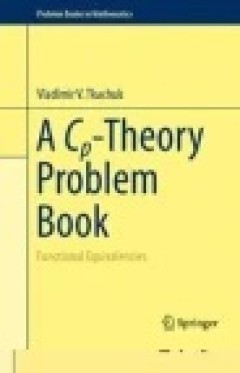
A Cp-Theory Problem Book: Functional Equivalencies
This fourth volume in Vladimir Tkachuk's series on Cp-theory gives reasonably complete coverage of the theory of functional equivalencies through 500 carefully selected problems and exercises. By systematically introducing each of the major topics of Cp-theory, the book is intended to bring a dedicated reader from basic topological principles to the frontiers of modern research. The book presen…
- Edition
- -
- ISBN/ISSN
- 978-3-319-24385-6
- Collation
- -
- Series Title
- Problem Books in Mathematics
- Call Number
- 514.1 TKA a
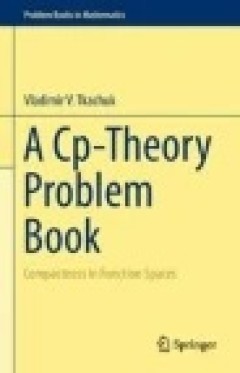
A Cp-Theory Problem Book: Compactness in Function Spaces
This third volume in Vladimir Tkachuk's series on Cp-theory problems applies all modern methods of Cp-theory to study compactness-like properties in function spaces and introduces the reader to the theory of compact spaces widely used in Functional Analysis. The text is designed to bring a dedicated reader from basic topological principles to the frontiers of modern research covering a wide var…
- Edition
- -
- ISBN/ISSN
- 978-3-319-16092-4
- Collation
- -
- Series Title
- Problem Books in Mathematics
- Call Number
- 512 TKA a

A Course in Mathematical Statistics and Large Sample Theory
This graduate-level textbook is primarily aimed at graduate students of statistics, mathematics, science, and engineering who have had an undergraduate course in statistics, an upper division course in analysis, and some acquaintance with measure theoretic probability. It provides a rigorous presentation of the core of mathematical statistics. Part I of this book constitutes a one-semester c…
- Edition
- -
- ISBN/ISSN
- 978-1-4939-4032-5
- Collation
- -
- Series Title
- -
- Call Number
- 519.5 BHA c
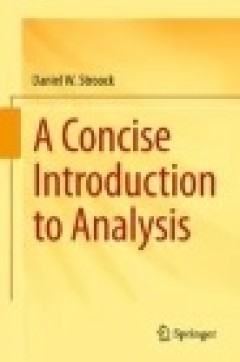
A Concise Introduction to Analysis
This book provides an introduction to the basic ideas and tools used in mathematical analysis. It is a hybrid cross between an advanced calculus and a more advanced analysis text and covers topics in both real and complex variables. Considerable space is given to developing Riemann integration theory in higher dimensions, including a rigorous treatment of Fubini's theorem, polar coordinates and…
- Edition
- Ed. 1
- ISBN/ISSN
- 978-3-319-24469-3
- Collation
- -
- Series Title
- -
- Call Number
- 515.9 STR c

Oxygen Transport to Tissue XXXVII
This book contains the refereed contributions from the 42nd annual meeting of ISOTT. The annual meetings of ISOTT bring together scientists from various fields (medicine, physiology, mathematics, biology, chemistry, physics, engineering, etc.) in a unique international forum. ISOTT conferences are a place where an atmosphere of interaction is created, where many questions are asked after each p…
- Edition
- -
- ISBN/ISSN
- 978-1-4939-3023-4
- Collation
- xxxii, 537 halaman
- Series Title
- Advances in Experimental Medicine and Biology
- Call Number
- 546.7 OXY
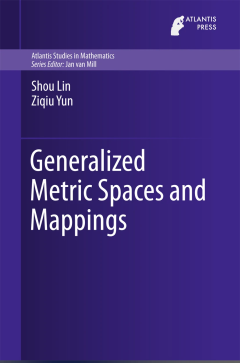
Generalized Metric Spaces and Mappings
The idea of mutual classification of spaces and mappings is one of the main research directions of point set topology. In a systematical way, this book discusses the basic theory of generalized metric spaces by using the mapping method, and summarizes the most important research achievements, particularly those from Chinese scholars, in the theory of spaces and mappings since the 1960s. This bo…
- Edition
- edisi kesatu
- ISBN/ISSN
- 978-94-6239-215-1
- Collation
- -
- Series Title
- -
- Call Number
- 510
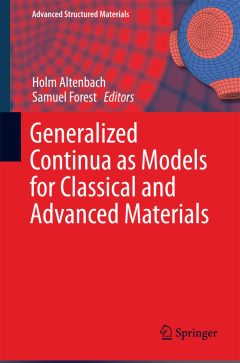
Generalized Continua as Models for Classical and Advanced Materials
This volume is devoted to an actual topic which is the focus world-wide of various research groups. It contains contributions describing the material behavior on different scales, new existence and uniqueness theorems, the formulation of constitutive equations for advanced materials. The main emphasis of the contributions is directed on the following items - Modelling and simulation of natura…
- Edition
- edisi kesatu
- ISBN/ISSN
- 978-3-319-31719-9
- Collation
- XII, 457 pages
- Series Title
- -
- Call Number
- 531 Gen
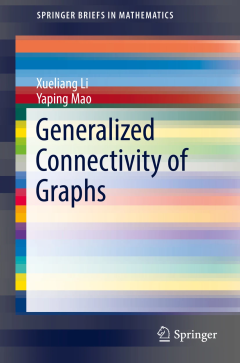
Generalized Connectivity of Graphs
“The monograph under review is devoted to the exposition of results about the generalized connectivity and generalized edge-connectivity of graphs. … Reading it does not require significant background in the relevant fields, as most concepts are introduced and defined … . I would recommend it for a researcher, graduate student, or senior undergraduate student who has an interest in pursui…
- Edition
- -
- ISBN/ISSN
- 978-3-319-33827-9
- Collation
- -
- Series Title
- -
- Call Number
- 511.5
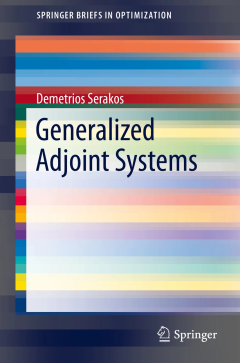
Generalized Adjoint Systems
Topics Calculus of Variations and Optimization,
- Edition
- -
- ISBN/ISSN
- 978-3-319-16651-3
- Collation
- -
- Series Title
- -
- Call Number
- 512
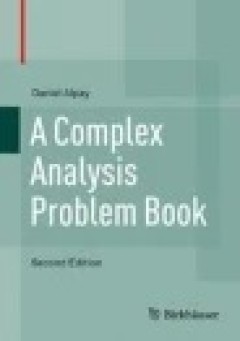
A Complex Analysis Problem Book
This second edition presents a collection of exercises on the theory of analytic functions, including completed and detailed solutions. It introduces students to various applications and aspects of the theory of analytic functions not always touched on in a first course, while also addressing topics of interest to electrical engineering students (e.g., the realization of rational functions and …
- Edition
- Ed. 2
- ISBN/ISSN
- 78-3-319-42181-0
- Collation
- -
- Series Title
- -
- Call Number
- 515.9 ALP c
 Computer Science, Information & General Works
Computer Science, Information & General Works  Philosophy & Psychology
Philosophy & Psychology  Religion
Religion  Social Sciences
Social Sciences  Language
Language  Pure Science
Pure Science  Applied Sciences
Applied Sciences  Art & Recreation
Art & Recreation  Literature
Literature  History & Geography
History & Geography